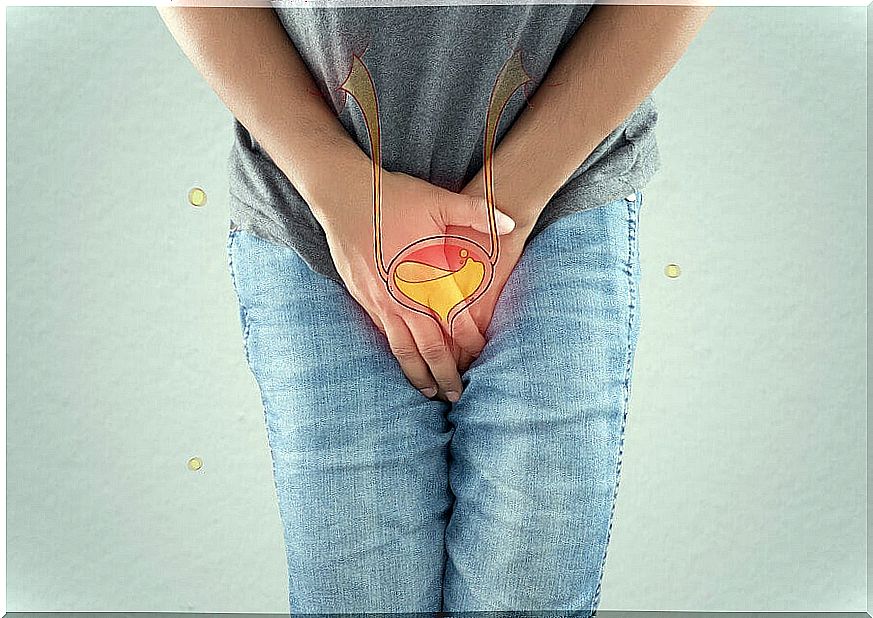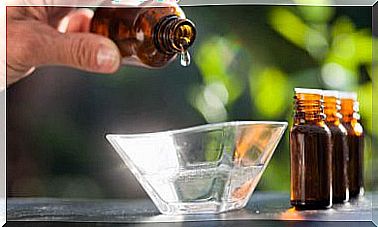Mannose: A Natural Remedy For Infections?
Mannose is not a first-line treatment for UTIs, but it can be an adjunct. What does the research say? How can it be consumed? We will tell you!

Research recently determined that the supplement D-mannose, or simply mannose, can help treat UTIs. Remember that these types of infections are quite recurrent in the population. According to data published in the Singapore Medical Journal , 1 in 5 women experience a UTI at some point.
What is mannose?
As a publication in Biochemical and Biophysical Research Communications explains , mannose is a type of simple sugar or monosaccharide. It has been studied for its potential to combat genetic and acquired diseases, but possible side effects have also been noted.
This same text highlights that mannose occurs in microbes, plants and animals. In its free form it can be found in small amounts in fruits such as oranges, apples, peaches, blueberries, among others. It is also found in mammalian plasma.
Mannose for UTIs: What Do Studies Say?
In ancient times, D-mannose was used to fight urinary tract infections in animals. However, after the development of some scientific studies, it began to suggest that it may be useful in humans. Let’s look in detail at some of the findings related to this topic.
A 2014 study in the World Journal of Urology found that mannose may help prevent a UTI from reoccurring after recovering from one. According to the details of the investigation, D-mannose had a superior effect than the antibiotic Nitrofurantoin.
Meanwhile, a pilot study published in 2016 in the European Review for Medical and Pharmacological Sciences noted that D-mannose may be an effective treatment for preventing and treating urinary tract infections.

How could mannose help?
Being in the body, it would go directly to the bloodstream and then to the bladder, where it adheres to the walls. From there, it attracts the E. coli bacteria , the main cause of urinary tract infections. At that moment its molecules bind and are expelled through the urine.
The incidence of these infections is higher in women than in men, since the E. coli bacteria reach the female urinary tract more easily.
Additionally, mannose strengthens the immune system by stimulating the production of leukocytes. This, in turn, increases the body’s defenses and makes it resistant to infection.
Studies on this topic continue to advance, but to date they are not entirely conclusive. More studies are needed to determine whether or not mannose is effective against UTIs. Therefore, it should not be a first-line treatment for these diseases and should be used with caution.
Side effects and risks
Given the lack of evidence, there are not too many side effects described from the use of mannose. In a study published in the World Journal of Urology , diarrhea was observed as the only side effect in some patients. However, the researchers considered that it was not such a severe effect that they stopped taking the supplement.
Another scientific article suggests that these supplements should be avoided in pregnancy and diabetes, as they can lead to complications. Regardless, it is always important to consult your doctor before taking this or other supplements.

How can I take it?
As you may already imagine, you can consume mannose through the fruits and vegetables mentioned above. However, this sugar is also commercially available as a food supplement in powder and capsule form.
The recommended daily dose is 1.5 grams, with a distribution of 500 milligrams 3 times a day. Its consumption does not cause side effects. For UTIs, taking mannose may relieve symptoms in 2 to 3 days.
It is not a first-line treatment
Studies have determined a positive relationship between D-mannose and an improvement in urinary tract infections. However, there is not enough evidence to consider it a first-line treatment. Therefore, like all supplements, it should only be an adjunct.
In case you present symptoms of infections such as fever, decay, general malaise and pain, go to your doctor. He will be able to determine what type of infection you have and what causes it. In this way, it will indicate the ideal treatment for your condition.









